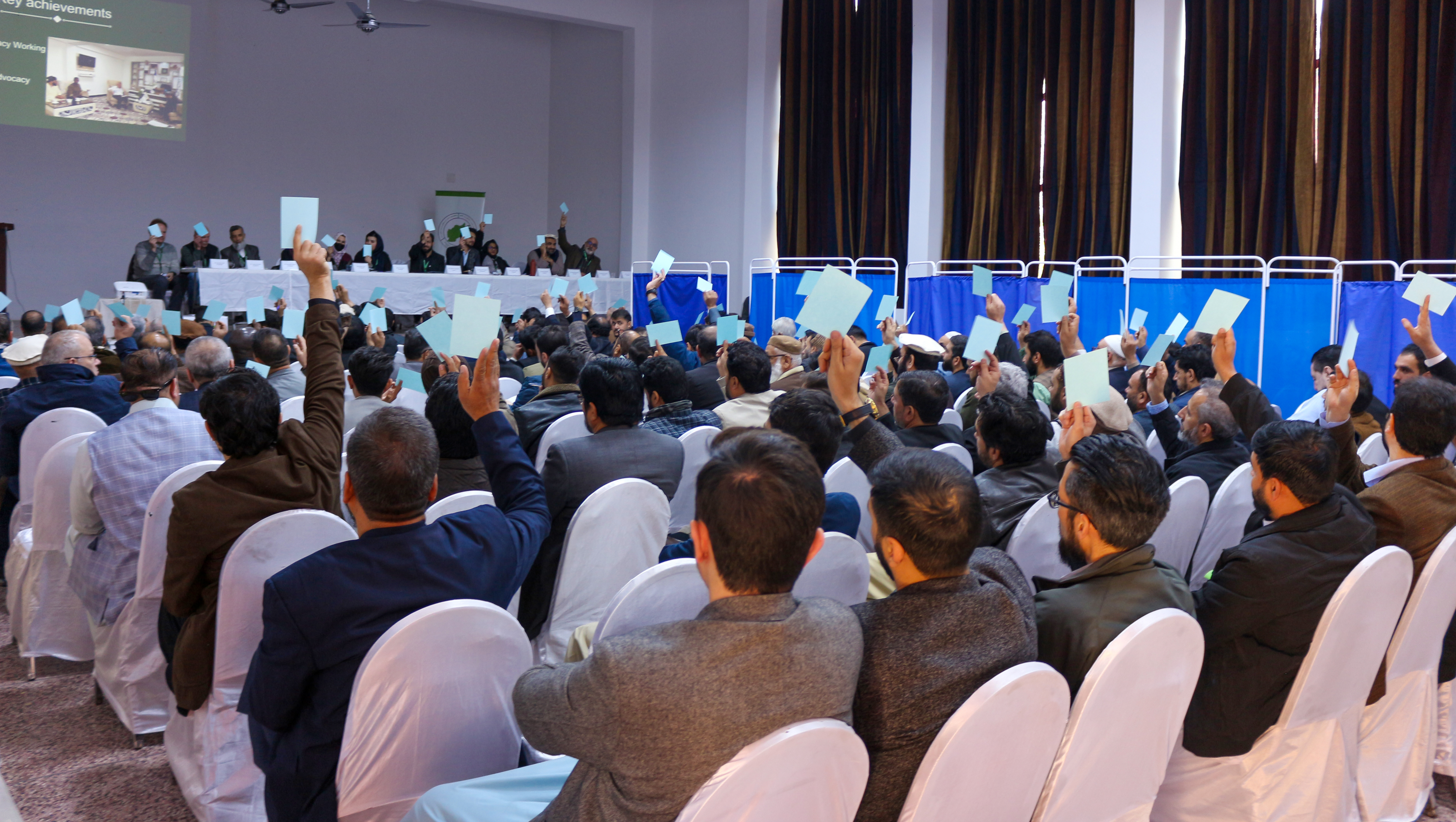
Coordination & Information
ACBAR Information and Coordination Department activities
-
Strengthen coordination responses, roles and activities to enable and improve members’ activities in Afghanistan.
-
Support collection and sharing of essential information among member NGOs and stakeholders (including civil society, donors, the UN, the media and the Afghan authorities). Serving the needs of members and the wider group of stakeholders is a core ACBAR activity.
-
Act a focal point, coordinates on practical issues of common interest; liaise, define, and implement solutions for members.
-
Support for regular, ongoing coordination mechanisms for ACBAR members to support an enabling environment (conducting informational and collaboration meetings, tailored member support, information sharing, data, etc.)
-
Representation of members within various coordination forums and engagement with authorities. Crisis support and troubleshooting for NGO members. Improved and strategic engagement with authorities to promote improved capacity and outcomes
Information and Coordination:
Generating data and analysis on NGOs in Afghanistan
A wide range of stakeholders require reliable information on NGOs operating in Afghanistan, either to inform decision-making or to better understand the background of development and humanitarian efforts in the country. Such information is also essential in demonstrating the impact and legitimacy of NGO activities. To meet this need, ACBAR maintains an updated field-level activity database of its member NGOs, which is revised annually. Furthermore, trend analysis and fact-based reporting play a key role in strengthening the advocacy efforts of ACBAR and its members.
Providing essential information to members
Information sharing is one of the core services delivered by ACBAR’s Information and Coordination Department. ACBAR manages a unique information network in Afghanistan, ensuring that members have access to timely and reliable data. In addition, ACBAR enriches this service by sharing updates on its activities, including coordination, advocacy, and representation of NGOs in various national and international forums.
Using information technologies to enhance internal and external communications
The ACBAR Information and Coordination Department disseminates information to both member organizations and external stakeholders, aiming to strengthen internal communication and collaboration among members. Its activities include mapping members’ programs, maintaining a directory of various aid sector working groups in Afghanistan, circulating donor fundraising opportunities, and sharing other information requested by members.
ACBAR’s website features a comprehensive resource library that consolidates publications, laws, and best practices related to NGOs operating in Afghanistan. To further facilitate knowledge and resource sharing, ACBAR organizes workshops and presentations on specific topics tailored to the needs and requests of its member organizations.
Facilitating Coordination
ACBAR facilitates coordination among its members through regular and ad-hoc meetings, scheduled according to a monthly calendar. The organization aims to enhance information exchange between NGOs and provide a platform for sharing expertise, as well as for preparing collective engagement on key issues across various development and humanitarian sectors. ACBAR fora include:
ACBAR Annual General Assembly – one of ACBAR’s key events, during which the organization presents its narrative and financial reports, elects new member NGOs, and elects the Steering Committee members. The General Assembly is attended by the Directors of all member organizations. ACBAR General Assembly
ACBAR Afghanistan Humanitarian Forum (AAHF) - a monthly forum hosted and facilitated by ACBAR. The AAHF focuses on coordinating the activities of humanitarian NGOs at both national and sub-national levels, representing and communicating the interests of NGOs to other humanitarian stakeholders and government bodies, and promoting high ethical and professional standards within the NGO community. The forum comprises both international and national humanitarian NGOs and provides input to OCHA’s Humanitarian Country Team (HCT) and AHF Advisory Boards. During the second half of each meeting, OCHA presents current issues and provides updates on the HNRP, AHF pooled funds, and humanitarian access challenges. AAHF Meeting
Afghanistan Development Forum (ADF) - a monthly forum chaired by ACBAR, providing a platform for dialogue between government authorities and NGOs. During these meetings, government representatives provide clarification on policies, priorities, share updates and address questions or clarify issues of concern raised by NGOs.
Bi-Monthly Directors’ Meeting The Bi-Monthly Directors’ Meeting, facilitated by ACBAR, provides a platform for NGO directors to receive updates and engage in discussions on key issues and developments affecting the humanitarian and development community. These meetings are held every two months and serve as an opportunity for directors to exchange views, strengthen collaboration, and coordinate responses to emerging challenges.
Advocacy Working Group (AWG) is a focused, action-oriented forum where select advocacy and communication representatives from ACBAR’s INGO/NNGO members collaborate to identify key challenges for NGOs in Afghanistan, develop advocacy strategies to improve the humanitarian and development environment, and ensure unified, evidence-based messaging for collective influence.
Human Resource Working Group (HRWG) a monthly working group meeting that provides a platform for members’ HR staff to collectively discuss the key issues and concerns related to human resource management and betterment of HR systems.
ACBAR Women Working Group (AWWG) a working group for NGO female staff to have a dedicated time and space to collectively discuss concerns, opportunities, and strategies for providing a better working environment for women-led organizations and women staff of member NGOs.
Accountability to Affected People (AAP-WG) This working group is led by ACBAR and UNFPA focusing on accountability in the humanitarian aid and services provided by humanitarian actors in the country. Participants are the AAP-WG partners (national and international NGOs).
Localization Technical Working Group (LTWG) a monthly working group led by ACBAR to focus on empowering local actors and strengthening donor–NNGO engagement in Afghanistan through inclusive, transparent, and accountable dialogue that amplifies local expertise, addresses context-specific challenges, and informs responsive funding policies in the humanitarian and development system

